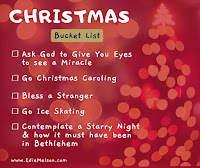Edie Melson's Blog, page 106
November 30, 2022
Excellent Reasons an Author Would Write a Novella

by Lynn H. Blackburn @LynnHBlackburn
If you’d asked me a few years ago for my feelings on novellas, I would have told you that they were okay, but they weren’t my first choice for reading material and that I wasn’t sure if I would ever write one.
I had my reasons. I like books that delve into the characters and relationships. I like complicated plotlines and secondary characters who have personality and depth. That’s hard to pull off in 90K. It’s close to impossible in 25K.
Fast forward a decade.
Y’all. As a busy wife, mom, homeschooler, author, reader and more…I can get behind a novella now!
Here are a few reasons an author would write a novella:
As a reader:
1. Reading a novella requires a short time commitment. I have zero self-control when I’m reading and frequently finish books the same day I start them—which means I stay up way too late! So a shorter story works great for my schedule.
2. If I enjoy a book, I always want to know more about what happened, both to the main characters and the secondary characters. Novellas that land in between novels in a series meet that need.
3. A novella gives me the opportunity to try a new-to-me author. Do I like their voice? The setting of their series? The glimpses of the characters? I have found so many new authors this way!
As a writer:
1. It’s not that writing a novella is easier than writing a novel. It isn’t. But it does require a shorter time commitment which makes it possible to squeeze writing one in between my longer-length projects.
2. When you indie publish a novella, the costs for editing, proofreading, etc. are less than for a full-length novel.
3. If you’re traditionally published, you probably have a limit to the number of novels you can publish in a series. A novella gives you the opportunity to surprise and delight your readers with stories from the secondary characters who are begging to have their own stories told.
Since I’ve jumped on the novella bandwagon, I’ve come to appreciate novella collections that are made up of multiple novellas from different authors. Here’s why:
As a reader:
A novella collection that is tied together by genre or theme (think romantic suspense or Christmas) is the bookish equivalent of the amazing flight of grits I had last summer in a Charleston restaurant.
Yes, I said flight of grits. They came out on a wooden board. Four small bowls of different types of grits. Two were sweet. Two were savory.
Here’s the thing. I don’t do sweet grits. Grits, in my opinion, are to be eaten with butter, salt, pepper, and maybe cheese. You can throw in some bacon. Or shrimp. That’s fine. But never in a million years would I order peach cobbler grits.
But since they came with the flight, I decided to try them. And guess what? The peach cobbler grits were surprisingly tasty. As were the blueberry muffin grits. Seriously! And the savory grits, including a pesto variety, were amazing and unlike anything I’d had before.
And this is what a novella collection is like for me as a reader. I treat a novella collection as an opportunity to try something I’m already predisposed to enjoy, along with some new things that I’m not sure about.
I’m not expecting the reading experience to be as filling and satisfying as a full meal. I’m expecting a taste. A sample. Sure, I want it to be compelling. But I don’t expect it to give me all the feels I typically get from a full-length novel. I understand the limitations of the novella, and I’ve come to appreciate it for what it is.
As a writer:
I’ve written a novella on my own and it was fun and served its purpose. I give it away to my newsletter subscribers, and that is an excellent use for a novella.
But I have to say that writing a novella collection with friends is the best! I reached out to a few of the authors I’ve worked with, and they said the same things. It’s hard work, but the opportunity to collaborate with other authors results in long-term friendships that wouldn’t have developed any other way.
Being part of a novella collection is also a great way to serve your readers, not only by giving them another story to enjoy, but by introducing them to authors who they may not have tried before.
So how about you? Have you considered writing a novella? Do you read novellas? I’d love to chat about this in the comments!
Grace and peace,Lynn
TWEETABLEExcellent Reasons an Author Would Write a Novella, from author @LynnHBlackburn on @EdieMelson (Click to Tweet)
 Lynn H. Blackburn loves writing romantic suspense because her childhood fantasy was to become a spy, but her grown-up reality is that she's a huge chicken and would have been caught on her first mission. She prefers to live vicariously through her characters and loves putting them into all kinds of terrifying situations while she's sitting at home safe and sound in her pajamas!
Lynn H. Blackburn loves writing romantic suspense because her childhood fantasy was to become a spy, but her grown-up reality is that she's a huge chicken and would have been caught on her first mission. She prefers to live vicariously through her characters and loves putting them into all kinds of terrifying situations while she's sitting at home safe and sound in her pajamas! Unknown Threat, the first book in her Defend and Protect series, was a 2021 Christy Award finalist and her previous titles have won the Carol Award, the Selah Award, and the Faith, Hope, and Love Reader’s Choice Award. Malicious Intent, the second book in the series, released March 2022.
She is a frequent conference speaker and has taught writers all over the country. Lynn lives in South Carolina with her true love and their three children. You can follow her real life happily ever after by signing up for her newsletter at LYNNHBLACKBURN.COM and @LynnHBlackburn on BOOKBUB, FACEBOOK, TWITTER, PINTEREST, and INSTAGRAM.
Published on November 30, 2022 22:00
November 29, 2022
3 Things That Help Speakers and Writers Prepare During the Holidays

by Yvonne Ortega @YvonneOrtega1
1. Clean your home and hearth before hanging Christmas decorations
Have you noticed dust on your furniture and light fixtures? Maybe the dust bunnies overtook your hardwood floors or hid in your carpet. Even with an electronic air cleaner, I need to clean more than once a week.
As you race against the clock with speaking and writing deadlines, maybe you can clean one room at a time. That might motivate you to hang up Christmas decorations the same way instead of a marathon at the last minute.
Perhaps piles of laundry and dirty dishes make you wish for a maid service that would arrive with a cleaning crew—or a bulldozer.
Contrary to what some people believe, the saying “Cleanliness is next to godliness” does not come from the Bible. That doesn’t mean you stop cleaning. When my son was in diapers and nursing, I never had enough energy and napped when he did. I did the best I could in my speaking and writing, and God understood that.
For moms, grandparents raising their children’s little ones, and those with osteoarthritis or some other physical limitation, the Bible verse I read says, “For God is not unjust so as to overlook your work and the love that you have shown for his name in serving the saints, as you still do” (Hebrews 6:10 ESV).
What Bible verse will you use and why?
2. Clean your heart and soul before celebrating Christ’s birth
My son and I used to memorize Bible verses together, bake Christmas cookies using a Nativity set of cookie cutters, and decorate the cookies. Afterward, we would give most of them to the neighbors.
We also used the Advent wreath on the four Sundays before Christmas. We prayed and recited the Bible verses, and I read a devotion. The custom emphasized spiritual readiness for Christ’s birth.
On Christmas Eve, we baked a birthday cake for Jesus. My son placed a candle for Jesus on the cake on Christmas Day, and we sang Happy Birthday to Jesus. Then my guy blew out the candle.
The world thinks of Christmas cookies, candy canes, and carols. You may enjoy those things. However, remember to focus on how ready your heart and soul are to celebrate Christ’s birthday. Build a community and leave a legacy for your own family not only for your audience of speakers and authors.
3. Clean your mind and attitude before inviting guests
During the Christmas season, some speakers and writers clear their computer of clutter and put the items on their desktop in folders. A clean and orderly computer may make life easier for you.
On the other hand, your mind and attitude may need a transformation before you exercise your gift of hospitality.
Maybe you filled your mind with jealousy and envy of other speakers and writers. Perhaps they worked in their area of giftedness. Maybe you haven’t stayed in “your lane” of speaking and writing or exercised in your area of giftedness where God called you.
Sooner or later, those feelings of jealousy and envy will come out of your mouth. Perhaps you grumble about the rejections you’ve received in the past year. Instead thank God for them because they give you the opportunity to improve your skills.
“Do not conform any longer to the pattern of this world, but be transformed by the renewing of your mind. Then you will be able to test and approve what God's will is—his good, pleasing and perfect will” (Romans 12:2 NIV).
Which one of the three tips will you work on in your Christmas preparation?
Merry Christmas.
TWEETABLE3 Things That Help Speakers and Writers Prepare During the Holidays from @YvonneOrtega1 on @EdieMelson (Click to Tweet)
 Yvonne Ortega walks with a small footprint, leaving a giant imprint in the lives of those she meets. Within this power-packed package is a professional speaker who offers encouragement, support, and accountability. Her calling to help women who face challenges move forward and live the abundant life through Christ has endeared her to thousands. As a gifted instructor, she helps those who speak and write make connections and find community. In addition to being a multi-published author, known for her Moving from Broken to Beautiful Series, she has degrees in Spanish and English and a master’s degree in education in counseling from the College of William & Mary.
Yvonne Ortega walks with a small footprint, leaving a giant imprint in the lives of those she meets. Within this power-packed package is a professional speaker who offers encouragement, support, and accountability. Her calling to help women who face challenges move forward and live the abundant life through Christ has endeared her to thousands. As a gifted instructor, she helps those who speak and write make connections and find community. In addition to being a multi-published author, known for her Moving from Broken to Beautiful Series, she has degrees in Spanish and English and a master’s degree in education in counseling from the College of William & Mary.You can find Yvonne at YVONNEORTEGA.COMAMAZON AUTHORFACEBOOKYOUTUBETWITTER
Published on November 29, 2022 22:00
November 28, 2022
How to Give Yourself a Wonderful Christmas Present—The Time to Write

by Edie Melson @EdieMelson
'Tis the season for giving. Today I'd like to suggest a gift you can give yourself.
Most writers I know are part of a conflicted group.
We’re driven to write—spending time composing poetry, writing books, researching articles. We doodle titles, character names, and plot ideas on scraps of paper. All the while feeling guilty about the time we spend pursuing our dream. I call it writer's guilt.
Everyone of us has felt the tug of war deep inside. it’s all part and parcel when you work at home.
I’ve fought the battle for years—sometimes more successfully than others. And the craziest thing is the guilt is pretty much self imposed. My family is frequently more supportive of my writing time than I am. So this Christmas I'm gifting myself with freedom from guilt and time to write.
Time to Write
Years ago I made a conscious decision to give myself permission to make writing a priority. I gave myself the gift of time to write. Sometimes it would have been easier to avoid the blank page and not risk the failure. But I refused to cave into the fear.
Has it been worth it?
You bet it has! Not only have I gotten farther along with my goals and dreams, but it’s given me a self-confidence I didn’t expect. The more I make writing a priority, the better I get at it. Then the more success I have, which leads to the courage to push myself and reach for the stars.
Here are the steps I took to set aside time for writing:
1. Come up with a schedule and keep regular, consistent hours. Notice I said regular hours—not normal ones. For years I wrote with young children. That meant writing in the afternoons and after they were in bed. Just because you’re working odd hours doesn’t mean you can’t have a schedule.
2. Respect your dream. If your best friend, or child had a dream you’d encourage them to pursue it. Give yourself the same support that you’d give someone else. Trust me, you’re worth it!
3. Be consistent. If you’re not accepting calls from your mother-in-law because you’re working, don’t spend the afternoon on the phone with your best friend. Stay focused on your writing. This is even more critical if your time is at a premium.
4. Recruit a support team. Instead of adversaries, enlist your friends and family to help you reach your writing goals. Communicate those goals, clearly and frequently. Ask for their help to reach them. After all, what mother doesn’t want to help her baby succeed!
5. Share your victories. Let those that help you share in the joy of goals accomplished and milestones reached.
What do you do to make your writing time a priority? What interruptions do you struggle with the most? Share your thoughts and we’ll all support each other.
Don’t forget to join the conversation!Blessings,Edie
TWEETABLE How to Give Yourself a Wonderful Christmas Present—The Time to Write from @EdieMelson (Click to Tweet)
 Edie Melson is a woman of faith with ink-stained fingers observing life through her camera lens. She’s a writer who feels lost without that device & an unexpected speaker who loves to encourage an audience. She also embraces the ultimate contradiction of being an organized creative. She knows the necessity of Soul Care and leads retreats, conferences & workshops around the world on staying connected to God. Her numerous books, including the award-winning Soul Careseries & reflect her passion to help others develop the strength of their God-given gifts. Her blog, The Write Conversation is recognized as one of the top 101 industry resources.
Edie Melson is a woman of faith with ink-stained fingers observing life through her camera lens. She’s a writer who feels lost without that device & an unexpected speaker who loves to encourage an audience. She also embraces the ultimate contradiction of being an organized creative. She knows the necessity of Soul Care and leads retreats, conferences & workshops around the world on staying connected to God. Her numerous books, including the award-winning Soul Careseries & reflect her passion to help others develop the strength of their God-given gifts. Her blog, The Write Conversation is recognized as one of the top 101 industry resources. She and husband Kirk have been married 40 years and raised three sons. They live in the foothills of the Blue Ridge Mountains and can often be found hiking—with Edie clinging to the edge of a precipice for the perfect camera angle and Kirk patiently carrying her camera bag and tripod. Connect with her on her website, www.EdieMelson.com and through social media.
Featured Image: Photo by Carly Kewley on Unsplash
Published on November 28, 2022 22:00
November 27, 2022
Learning to Be Thankful for the Difficult Parts of Writing as well as the Wonderful Parts

by Ane Mulligan @AneMulligan
Have you watched HGTV's show The Ugliest House in America? As I watched the episode when they announced the winner, I thought how thankful the owner must have been to have the ugliest house, since they now got a $150,000.00 makeover by a top celebrity designer.
We writers give God praise and thanksgiving when we get a fantabulous idea for a book, finish a book, sign a contract, win a contest, become a bestseller.
But do we thank Him for the ugly? The writer's block? Rejections? Contest losses? Hard criticism from a contest judge? There are a host of other uglies in a writer's life. But we are promised in Rom 8:28 that God causes all things to work together for the good of those who love Him. So why not thank him for those, too?
I believe if God allows something (rejection, block, loss, etc) in my life, He will teach me, mold me, grow me from that "ugly," and in the end bring good from it. So I need to thank Him for ALL things.
Most important, a thankful heart is a yielded heart. One that God loves and can use.
TWEETABLELearning to Be Thankful for the Difficult Parts of Writing as well as the Wonderful Parts, insight from author @AneMulligan on @EdieMelson (Click to Tweet)
 Ane Mulligan lives life from a director’s chair, both in theatre and at her desk creating novels. Entranced with story by age three, at five, she saw PETER PAN onstage and was struck with a fever from which she never recovered—stage fever. One day, her passions collided, and an award-winning, bestselling novelist immerged. She believes chocolate and coffee are two of the four major food groups and lives in Sugar Hill, GA, with her artist husband and a rascally Rottweiler. Find Ane on her website, Amazon Author page, Facebook, Instagram, Pinterest, The Write Conversation, and Blue Ridge Conference Blog.
Ane Mulligan lives life from a director’s chair, both in theatre and at her desk creating novels. Entranced with story by age three, at five, she saw PETER PAN onstage and was struck with a fever from which she never recovered—stage fever. One day, her passions collided, and an award-winning, bestselling novelist immerged. She believes chocolate and coffee are two of the four major food groups and lives in Sugar Hill, GA, with her artist husband and a rascally Rottweiler. Find Ane on her website, Amazon Author page, Facebook, Instagram, Pinterest, The Write Conversation, and Blue Ridge Conference Blog.Featured Image: Photo by Debby Hudson on Unsplash
Published on November 27, 2022 22:00
November 26, 2022
A Free Gift for Writers: The Writer’s Social Media Advent Calendar

by Edie Melson @EdieMelson
Social media isn’t a favorite thing for a lot writers and speakers. And for many it brings a great deal of stress. But it IS a great way to connect with those we serve. This year, I’d like to offer you a gift—a way to connect with your readers that’s already organized and ready to go.
I spent a lot of time trying to figure out something that would help you, WITHOUT adding additional stress. And this is what I’ve come up with—a social media advent calendar for writers to use to bless their audience.
How to Use the Writer's Social Media Advent Calendar1. The list below is organized by day. Each day is explained, if needed. You have two choices every day, you can create an image for each post, or you can use the image I provide for each day for all my newsletter subscribers.2. At the end of this post is my newsletter subscription link (not this blog subscription, this subscription is for my newsletter). For all those (current and new) subscribers, you'll receive a welcome email that has a link to a Google Drive Folder where all the images are housed. You are welcome to download each image and use it as you please. Each image is copyright free and free to use. (All images were created in Canva) NOTE: If you're already subscribed to my newsletter, you will have received an email from me with the link to the images. Check your spam folder and if you don't have an email from me, it means you're not subscribed.
In that folder you’ll find all the ready-made images if you don’t want to make your own. They are each created from Creative Commons License 0, meaning they are copyright free and have no financial charge to use them.
Social Media Advent Calendar for Writers to Bless Their Readers
 December 1Create an Acrostic with the word PEACE. You can use each letter as the beginning of a word, or a phrase, or you can use the letter somewhere inside the word. The idea is to stretch your creativity and encourage your audience to do the same! (The image to the left is what I created for day one. I'm including and the one for December 2 so you can see what you'll get when you subscribe)
December 1Create an Acrostic with the word PEACE. You can use each letter as the beginning of a word, or a phrase, or you can use the letter somewhere inside the word. The idea is to stretch your creativity and encourage your audience to do the same! (The image to the left is what I created for day one. I'm including and the one for December 2 so you can see what you'll get when you subscribe)I came up with this one:
PerfectlyEncouragedAfter ChristEmpowers.
 December 2This is a Challenge. Ask your followers to Create a Christmas Bucket List. I’ve found in years past that when the holiday season was finished I had regrets—things I’d wished I’d taken time to do. To combat this, I began creating a Christmas Bucket List to help me stay on track. The things I include areAsk God to give me the eyes to see a miracle this holiday seasonTake time to go Christmas carolingGive me the opportunity to bless a strangerGo ice skatingContemplate a starry night and how it must have been in Bethlehem
December 2This is a Challenge. Ask your followers to Create a Christmas Bucket List. I’ve found in years past that when the holiday season was finished I had regrets—things I’d wished I’d taken time to do. To combat this, I began creating a Christmas Bucket List to help me stay on track. The things I include areAsk God to give me the eyes to see a miracle this holiday seasonTake time to go Christmas carolingGive me the opportunity to bless a strangerGo ice skatingContemplate a starry night and how it must have been in BethlehemDecember 3This or That: Real or Artificial Greenery? This is the chanced to get your audience to participate. People have strong feelings about certain parts of the holidays, for some it’s whether the tree and greenery is real or artificial!
December 4What day do you decorate and what day do you take the décor down? This is another question that people are very opinionated about!
December 5Gift Exchange Ideas. I always have several gift exchange parties during the holidays. Many of them have limits on how much can be spent. So asking my followers for good ideas is a great way to get something unusual.
December 6Share a Funny/Happy Christmas Pet Story. Most people either have pets, used to have a pet or know someone who has a pet. And our furry friends usually give us some great stories—some funny and some precious—to share during the holiday.
December 7Favorite Christmas Movie. We all have them—a movie or TV special that we must see during the holidays. Ask your followers to chime on with theirs and maybe we’ll all discover some new viewing favorites!
December 8Favorite Place to Visit During the Holidays. There is a certain street in a neighborhood nearby that we always make sure to visit because the Christmas lights are always so beautiful. I have a friend who visits a certain town, and another who absolutely loves the beach at Christmas.
December 9This or That: White Lights or Colored Lights? Here’s another opportunity to let your audience chime in with their preferences. Here in our family, we’re a house divided—Kirk loves colored lights and I’m partial to white lights. So we have TWO Christmas trees—and now we’re both happy!
December 10Favorite Christmas Craft. You knew I’d have to squeeze this one in. I love knitting, crocheting and crafting in general. Every year I try to come up with a Christmas craft that allows me to share my creativity. One year I took light bulb ornaments, used a pain pen to add the year and a Bible verse and tied the ornament with a ribbon. I kept these in a box by the front door and everyone who came to the house got to choose one to take home.
December 11Share an old picture from a Christmas Past. We all have them. Photos from Christmas past. Some are cute and some include 80s hair and ugly sweaters (back when we thought the sweaters were pretty). Now’s the time to share!
December 12Favorite Gift Given/Received. We all remember those special gifts that made a lasting impression. Share yours and ask your audience to share theirs.
December 13Favorite Christmas Carol. Music is an integral part of the holidays for most of us. Kirk and I got married on December 19 and I had a flutist play What Child is This during the ceremony. So every time we hear that carol, we’re transported to that precious day!
December 14Share your tradition(s). What absolutely has to happen every year? Is it a food, a gathering, a certain ornament or all of the above? Share your traditions, ask your audience to do the same and we might all begin making new traditions!
December 15Challenge: Give Back at Christmas. I have friend who purchases several $5 gift cards and takes one day to hand them out to strangers. Others fill shoeboxes or serve food at a soup kitchen. This is a great time to show the love of God so let’s spur each other on with new ideas.
December 16This or That: Gift Card or Gift. Here’s another hot button topic. Some people are offended by gift cards, others adore them. (I fall in the adore-receiving-them-camp.) This will be another way to get the conversation humming on your social media feed.
December 17Favorite Dessert. What’s yours? Gingerbread, chocolate chip cookies, pie or something more adventurous. This year our local critique group discover4ed we all have a different recipe for something called Christmas Crack. So we’ve planned a party around that theme. We’re all bring our version ready-made and a copy of the recipe to share. I’m putting together an ebook of all our recipes and we’ll have a fun keepsake to remember our precious friendships.
December 18Conversation Ideas for Family Gatherings. We all have them and sometimes they can be awkward. Here’s an opportunity to get some ideas for conversation starters to keep the verbal ball from injuring someone!
December 19Focus on the Reason for the Season. We’re in the home stretch and many of your online friends will be weary of the chaos and superficiality that creeps in. So help them redirect their focus by sharing what you do to remember why it’s called CHRISTmas!
December 20Favorite Holiday Drink. Kirk loves hot chocolate and wassil. I’m a fan of coffee flavored drinks. Do you have favorite beverage that enhances a quiet holiday evening at home or with friends?
December 21Memories of Childhood Christmas. What do you remember from your childhood Christmas’s? Now’s the time to wax nostalgic and encourage your online friends to do the same.
December 22Funny Christmas Catastrophe. We all have them, the year something went wrong on Christmas. Ours is a humdinger. One year we bought our 16-year-old son his dream car—an old model Jeep. Kirk went to pick it up on Christmas Eve after the boys went to bed and it died on the way home. Instead of a car in the driveway, all our son got was a box of keys and the long wait while we had the engine replaced after the mechanic got back to work.
December 23Favorite Christmas Eve Tradition. For me, it wouldn’t be Christmas Eve without a candlelight service at church. Before kids we attended the midnight service, now we opt for the one earlier in the day.
December 24What does Jesus mean to you at Christmas? In my opinion, this is the opportunity to share our hearts with those we may never meet in person. By talking about what Jesus means to me, I have the ability to introduce someone to my Savior. When we share our hearts honestly, we encourage and empower others to do the same. Who knows, this one question might break the internet—in a GOOD way!
December 25Merry Christmas! This one is all yours. I didn’t include an image because I want you to send this one yourself. If all you can do is type the words, that’s GREAT! If you want to create a fancy image, that’s great too. The important thing is to let those we interact with online know that we care and are thinking about them.
So here it is, my gift to you. Please know that each of you is a loved and treasure part of my community. I adore doing life with you!
Don’t forget to join the conversation!Blessings,Edie
Subscription link for my newsletter to receive the free images (Click Here)
TWEETABLEA Free Gift: The Writer’s Social Media Advent Calendar from @EdieMelson (Click to Tweet)
 Edie Melson is a woman of faith with ink-stained fingers observing life through her camera lens. She’s a writer who feels lost without that device & an unexpected speaker who loves to encourage an audience. She also embraces the ultimate contradiction of being an organized creative. She knows the necessity of Soul Care and leads retreats, conferences & workshops around the world on staying connected to God. Her numerous books, including the award-winning Soul Careseries & reflect her passion to help others develop the strength of their God-given gifts. Her blog, The Write Conversation is recognized as one of the top 101 industry resources.
Edie Melson is a woman of faith with ink-stained fingers observing life through her camera lens. She’s a writer who feels lost without that device & an unexpected speaker who loves to encourage an audience. She also embraces the ultimate contradiction of being an organized creative. She knows the necessity of Soul Care and leads retreats, conferences & workshops around the world on staying connected to God. Her numerous books, including the award-winning Soul Careseries & reflect her passion to help others develop the strength of their God-given gifts. Her blog, The Write Conversation is recognized as one of the top 101 industry resources. She and husband Kirk have been married 40 years and raised three sons. They live in the foothills of the Blue Ridge Mountains and can often be found hiking—with Edie clinging to the edge of a precipice for the perfect camera angle and Kirk patiently carrying her camera bag and tripod. Connect with her on her website, www.EdieMelson.com and through social media.
Published on November 26, 2022 22:00
November 25, 2022
Write Better Heroes When You Know the Top Seven Essential Character Qualities to Include

by Zena Dell Lowe @ZenaDellLowe
I have been saying for some time that a key hallmark of writing from a Christian worldview ought to be main characters who have all the makings of a hero. Instead of assigning to our characters the types of flaws that currently dominate the anti-hero archetype in secular culture, our protagonists ought to be comprised of different stuff. This different “stuffness” would necessarily preclude our characters from having certain characteristics for their “fatal flaw.” Not to say that they wouldn’t have flaws. They would. But the types of flaws that we would assign to them would differ greatly if only we understood what sorts of characteristics were automatically out of bounds from the start.
To that end, I’ve come up with a list of what I see as the top seven heroic qualities that our main characters ought to embody, if not at the beginning of the story, then certainly by the end. These are in no particular order or hierarchy, though they do seem “connected” to one another. What I mean is that while I’m sure it’s possible to incorporate one or more of these qualities by themselves, my strong advice is that we look at them more wholistically as a group of characteristics that must all be present to varying degrees for that character to be truly heroic.
If one of these is missing, the heroic nature of the character overall is compromised. Thus, any character who’s being touted as potentially heroic must already possess these qualities to truly qualify as such. Take one quality away and it undermines the character’s heroism. That said, some of these may be weaker at the start, and some stronger, with the weaker parts gaining strength over the course of the story, which would play into the character’s overall arc.
This list may not be definitive. There may be other qualities that we’ll come to see as being necessary for a hero-in-the-making. But as of today, this list represents my best distillation of the types of qualities that potentially heroic characters ought to possess. As it stands, this list seems sufficient, i.e. all that are necessary for a hero in the making. Hopefully, it will give you insight into what you can do with your own main character. Or, you can use it to analyze the types of heroes being proffered to us in film and television. Whether you're a writer or just a consumer of culture, we can't allow ourselves to simply become passive recipients of culture. Instead, we ought to learn how to think critically about the types of entertainment we're taking in. May this list serve as a tool or measuring rod to help you determine the true heroes from those who are false.
TOP SEVEN HEROIC QUALITIES
1. SELFLESS: The number one quality of any hero is that they're selfless. This means they put the needs of others before themselves. They care about people. They sacrifice their own wants, desires, and needs for the good of those around them and will even lay down their lives if necessary. I often see main characters whose goals are intrinsically selfish. i.e. The main character is the only one who will gain. This makes the character self-indulgent and petty. Heroes lay down everything for the sake of others, even healthy desires like romantic love, or legitimate dreams, like achieving some personal goal solely for their own enjoyment. A true hero must give these things up or pursue them for the benefit of others, not just self. Other words: unselfish, self-sacrificial, altruistic, humble, caring, other-centric.
2. NOBLE: Heroic characters are driven by noble principles. They think rightly about what matters. They believe in something bigger than themselves. They aspire to live up to their highest ideals and are noble in their actions. They believe in noble ideals that are worthy to fight for, and fight for them they must. Sometimes they can get confused by their own motives. i.e., Are they really being honorable or just stubborn? Even if they get it wrong, they strive to live up to the right ideals. Other words: principled, virtuous, righteous, upright motives, moral, honorable.
3. MORAL: Heroic characters have a strong moral compass. They aren't confused about right and wrong. They aren't morally ambiguous. They know the difference between good and evil and strive to do the right thing. This doesn't mean they always succeed, but at their core, they are driven by an innate sense of justice. Usually, if they cross the line, it's because justice has been so grossly violated that they want to set things right. They'll sometimes err by taking matters into their own hands, which means they’ll need to see the error of their ways and repent before they can be allowed to win. Other words: good, honorable, decent, honest, just.
4. RESPONSIBLE: Heroes are those who feel compelled to act. They believe it's up to them to do something about whatever it is that’s going on. They take responsibility for more than is theirs by assignment. It falls to them to right some wrong. This also makes them feel guilty for things they had no power over, which makes for compelling drama. Other words: action-oriented, driven, liable, duty-bound, guilty, accountable, plagued.
5. IDEALISTIC: Heroic characters are idealistic, not in the naive sense, but in the sense that they believe that some things are worth fighting for. In a hopeless and nihilistic world, they're idealistic because they have hope in something bigger. They believe their actions matter, that it’s possible for them to make a difference and so they must try. They believe it’s worth it to stand up against evil for the sake of righteousness even if they lose, even at the cost of their own lives. Never give up, never surrender. They must fight, they must fight, they must fight. And they must win or die trying. Other words: uncompromising, fervent, unwavering, hopeful, surrendered to that which is right.
6. COURAGEOUS: Above all else, heroes must act. Even in the face of astronomical and hopeless odds, they must find the courage to take action. Being courageous doesn't mean that they aren't afraid. They may even be terrified, but they must act anyway, and their actions must be radical. Half measures will not suffice. They’re all in, fully committed, driven to do what's right. By the end of the story, you can never have a hero turn and run away from a righteous battle or behave in a cowardly fashion. By then story’s end, their courage must be set. Other words: brave, committed, resolute, determined, steadfast, unyielding.
7. REPENTANT: For all their right motives, heroes will inevitably get some things wrong. They'll be mistaken about someone else's heart, or about the right course of action. They'll make mistakes and cause terrible harm to others as a result. The key is, when this happens, the moment they become aware of their shortcoming, they must repent. When they do wrong, they recognize it and feel sorry for it, and immediately have a change of heart. They allow themselves to be corrected, which is seen in the action that follows. Because true repentance is demonstrated by the immediate steps they take to rectify the situation. They must make things right. As soon as they see the truth, they immediately make amends or take other corrective measures to right the wrong they’ve done. Other words: humble, penitent, contrite, remorseful, conscience-stricken, demonstrated by actions.
TWEETABLEWrite Better Heroes When You Know the Top Seven Essential Character Qualities to Include from @ZenaDellLowe on @EdieMelson (Click to Tweet)
 Zena has worked professionally in the entertainment industry for over 20 years as a writer, producer, director, actress, and story consultant. Zena also teaches advanced classes on writing all over the country. As a writer, Zena has won numerous awards for her work. She also has several feature film projects in development through her independent production company, Mission Ranch Films. In addition to her work as a filmmaker, Zena launched The Storyteller’s Mission with Zena Dell Lowe, a podcast designed to serve the whole artist, not just focus on craft. In 2021, Zena launched The Storyteller’s Mission Online Platform, where she offers advanced classes and other key services to writers. Zena loves story and loves to support storytellers. Her passion is to equip artists of all levels to achieve excellence at their craft, so that they will truly have everything they need to change the world for the better through story.
Zena has worked professionally in the entertainment industry for over 20 years as a writer, producer, director, actress, and story consultant. Zena also teaches advanced classes on writing all over the country. As a writer, Zena has won numerous awards for her work. She also has several feature film projects in development through her independent production company, Mission Ranch Films. In addition to her work as a filmmaker, Zena launched The Storyteller’s Mission with Zena Dell Lowe, a podcast designed to serve the whole artist, not just focus on craft. In 2021, Zena launched The Storyteller’s Mission Online Platform, where she offers advanced classes and other key services to writers. Zena loves story and loves to support storytellers. Her passion is to equip artists of all levels to achieve excellence at their craft, so that they will truly have everything they need to change the world for the better through story.To find out more about Zena or her current courses and projects, check out her websites at WWW.MISSIONRANCHFILMS.COM and WWW.THESTORYTELLERSMISSION.COM
Featured Image: Photo by Javier García on Unsplash
Published on November 25, 2022 22:00
November 24, 2022
5 Things Writers Can be Thankful For Today

by Lori Hatcher @LoriHatcher2
When Abraham Lincoln declared a day of thanksgiving on the fourth Thursday in November, 1863, he instituted one of the most beloved American traditions. But a holiday to express our thanks didn’t begin with President Lincoln. It began, as does everything wonderful, with God. Early in the nation of Israel’s history, God instituted seven feasts or celebrations. In Leviticus 23:2, God calls them “feasts of the LORD” and “My feasts.”
God commands us, as a people, to give thanks. This is why I thought it would be appropriate, on this Thanksgiving weekend, to pause, writer-to-writer, and ponder a few of the many things we have to be thankful for.
A Writer's Gratitude List
1. Laptops
As much as my laptop vexes me when it shuts off for no reason, locks me out, or hides documents in folders I didn’t know existed, I’m still very grateful for it. Remember when a 40-lb. desktop was our only option? (And yes, I was very grateful for that, too, because it replaced my electric typewriter.) But oh, the convenience of being able to take my computer with me and work on airplanes, in a coffee shop, or in a quiet spot in the woods. No longer am I chained to my desks when the wild wild world beckons. Thank you, Lord.
2. Bible Software
Remember the days when you had to look up a verse in Strong’s Concordance, cross reference it in your King James version of the Bible, and type it, word by word, into your manuscript? Thankfully, those days are gone (except during power outages). Today if we need a verse about forgiveness, we can type the word into the handy dandy search box and every occurrence of the word will pop up. With one fell swoop, we can cut and paste the perfect verse into our document without missing a jot or tittle. Thank you, Jesus.
3. Search Engines
Until recently, if writers needed to research a topic like What did indigenous people in Southeast Asia eat in the 1800’s, good luck. We were limited to the books available in our local library, or, if we were especially savvy, through interlibrary loan. Now, with a few keystrokes, we can learn not only what indigenous people in Southeast Asia ate, we can discover where they lived and what their favorite flavor of toothpaste was. We’re no longer limited to writing about our personal areas of expertise or what we’ve learned by interviewing an expert. We can access data bases from all over the world (even Southeast Asia) and learn everything we need about whatever topic we’d like to write about. Thank you, Father.
4. Critique Partners and Groups
My beloved critique partner (shout out to the amazing Jean Wilund) has helped polish my writing more than any other writer’s “tool.” She and my two critique groups (thumbs up to Lexington Word Weavers and Page 33) offer invaluable feedback, perspective, and suggestions. They provide more than just technical advice, though. They cheer me on when I’m discouraged, share their writing connections, and pray for me. Thank you, God.
5. The Opportunity to Do What We Love
Sometimes I feel overwhelmed with gratitude that I get to do what I love. I suspect you feel the same. God called us to Himself, gifted us with the desire to write, and then gave us an audience who can benefit from our words. Sometimes God uses our writing to reach thousands. Sometimes He intends it for the young mother sitting in the pew next to us or the grieving neighbor on the next block. Regardless, writing in His name is an honor and a privilege. May we never take it for granted. Thank you, dear God.
Now it’s your turn. What are you thankful for in this crazy, wonderful writers’ world? Leave a comment below and join the conversation.
TWEETABLE5 Things Writers Can be Thankful For Today from author @LoriHatcher2 on @EdieMelson (Click to Tweet)
 Lori Hatcher is an author, blogger, writing instructor, women’s ministry speaker, and career dental hygienist. She writes for Our Daily Bread, Guideposts, Revive Our Hearts, and Crosswalk.com. Lori’s upcoming devotional, Refresh Your Hope, 60 Devotions for Trusting God with All Your Heart, will release on January 3, but is available now for preorder. Connect with her at www.LoriHatcher.com or on Facebook, Twitter (@lorihatcher2) or Pinterest (Hungry for God).
Lori Hatcher is an author, blogger, writing instructor, women’s ministry speaker, and career dental hygienist. She writes for Our Daily Bread, Guideposts, Revive Our Hearts, and Crosswalk.com. Lori’s upcoming devotional, Refresh Your Hope, 60 Devotions for Trusting God with All Your Heart, will release on January 3, but is available now for preorder. Connect with her at www.LoriHatcher.com or on Facebook, Twitter (@lorihatcher2) or Pinterest (Hungry for God).
Published on November 24, 2022 22:00
November 23, 2022
Common Writing Obstacles (Part 7): Taking Risks

by Henry McLaughlin @RiverBendSagas
Write the Story
Writing is risky. And not just in the sense of facing physical danger. Although I’m sure many writers did face physical danger at one time that stimulated or inspired them to write their story.
There are other risks every writer faces. More mundane than climbing Mt. Everest, but just as real. The underlying source of these risks is fear. Fear of rejection. Fear of embarrassment. Fear of failing.
First, there is the risk of writing the book. Am I capable of writing a book? Can I even write? We risk ridicule from family and friends who think they know us better than we know ourselves.
As we sit to write, maybe the words of our high school English teacher come to mind: “I gave this essay an F because the school won’t let me grade any lower. I suggest looking into a career as an auto mechanic. You’ll never make it as a writer of anything beyond grocery lists.” Or words to that effect. The sound you heard was the crashing of a dream to dust, or a tornado ripping the house of your confidence from its foundation and scattering it beyond recovery.
As your fingers hover over the keyboard, maybe a memory resurrects of being cut from the baseball team and the coach made it clear it was because you don’t have what it takes.
Let me say this right here: if you want to write, you have what it takes. It probably needs to be developed and refined. As I wrote in an earlier post, we can learn the craft of writing. What we need is the discipline to write and the courage to seek help to learn so we can make our story better.
The Critique Group
For many of us, the next huge risk is taking our work to a critique group. Maybe our story is finished. Maybe we’ve reached the point where we want feedback on how we’re doing and where we need to go from here. So, we join a critique group.
Here we face the risk of rejection from other writers. We’re rookies moving into the realm of professionals. Some may be published. Others are probably much further down the road than we are. Unfortunately, a few others may be prima donnas who think they know all there is to know about writing and you simply need to write like they do.
I think this is a risk we must take to grow as writers even though we face the risk of rejection, of embarrassment, of failing in front of a community we desperately want to be a part of.
The critique group is where we learn to assess more than our writing. We also learn to discern valuable feedback from not so valuable feedback. Biblically, we learn to separate the wheat of feedback that helps from the chaff of feedback that doesn’t. And this takes a while to learn.
We may not click with our first critique group. Personalities and styles rub the wrong way. We may test several groups before finding the best one for us. And it’s not the one that always praises our writing. We need a group that challenges us to grow and take chances.
How to Edit
We’ve finished our manuscript. By this I mean we’ve written the equivalent of two drafts. Our first draft and then revised it with feedback from our critique group. Now what?
We have options. We can edit it ourselves. It is possible and feasible to edit ourselves. Our approach needs to be as an editor, not an author. We need to shift from right brain to left brain. There are resources available. Two I recommend are Self-Editing for Fiction Writers by Browne and King. The other is Revision and Self-Editing for Publication by James Scott Bell. I also wrote a series of blogs on self-editing. The links are at the end of this blog.
Another risk here is doing it on our own or paying a freelance editor to do it for us. I recommend doing it yourself and then hiring an editor to do it. We’re too close to our work to give the honest appraisal it needs. If we’re diligent when we self-edit, it frequently makes the job of the hired editor easier. And it helps us prepare a polished product for when we take the risk of pitching to agents and publishers.
We can hire an outside editor. Or we can rely on the publisher to edit. The problem is at this point, we most likely do not have a publisher. Why? Because our manuscript is not the best it could be. It needs an edit and probably more drafts. My first published novel had eight drafts before it won its contest. Then we had one more edit with the publisher before it was released.
Or maybe we decide to self-publish. That’s great. But then we definitely need a professional editor. And a cover designer along with other professionals to help make a quality product. This is a subject for another blog. Because this one is already long enough.
What are some of the risks you’ve taken in your writing? What lessons did you learn? Would you do it again?
TWEETABLECommon Writing Obstacles (Part 7): Taking Risks from author Henry McLaughlin, @RiverBendSags on @EdieMelson (Click to Tweet)
Don't Miss the Rest of the Posts in This Series!COMMON WRITING OBSTACLES (PART 1): TIMECOMMON WRITING OBSTACLES (PART 2): TALENT VS LEARNINGCOMMON WRITING OBSTACLES (PART 3): PERFECTIONISMCOMMON WRITING OBSTACLES (PART 4): WORLD BUILDINGCOMMON WRITING OBSTACLES (PART 5): TAKING RISKSCOMMON WRITING OBSTACLES (PART 6): PLOTTINGCOMMON WRITING OBSTACLES (PART 7): TAKING RISKS
Links to The Art of Self-Editing Blogs:THE ART OF SELF EDITING PART 1THE ART OF SELF-EDITING, PART 2THE ART OF SELF-EDITING, PART 3THE ART OF SELF-EDITING, PART 4THE ART OF SELF-EDITING, PART 5
 Henry’s debut novel, Journey to Riverbend, won the 2009 Operation First Novel contest.
Henry’s debut novel, Journey to Riverbend, won the 2009 Operation First Novel contest.Henry edits novels, leads critique groups, and teaches at conferences and workshops. He enjoys mentoring and coaching individual writers.
Connect with Henry on his BLOG, TWITTER and FACEBOOK.
Published on November 23, 2022 22:00
November 22, 2022
Discover & Accomplish Your Writer's Adventure List

by DiAnn Mills @DiAnnMills
Our writing careers are met with victories, successes, challenges, rejections, and lots of writing time in between. One way to stay encouraged and focused is to create a Writer’s Adventure List, those things that are personal, achievable, and unique to every writer.
Writers are motivated to begin their careers—
To create a story that others will enjoyTo make extra money to supplement their incomeTo fulfill a spiritual calling To satisfy a curiosityTo compete with what they feel can be improved on what is being publishedTo use writing as a springboard to achieve other successes
The above reasons to write are noble and worth the hours of hard work, but a Writer’s Adventure List makes the process personal.
What kind of items thrill you as a writer? These are specific hopes and dreams—To see your name and book title on a New York Times Bestselling ListTo learn your book has been nominated for a highly coveted awardTo discover your book will be made into a movieTo use the proceeds to fund a charityTo plan a vacation for yourself and/or loved ones that might not otherwise be affordableTo teach writing at conferencesTo experience the admiration of others who treasure your writingTo feel your career has impacted others for good
How does a writer discover those personal gems that make for an incredible adventure?List those aspirations that could only be achieved by a successful writer. *Note success is defined by the writer.List the special, personal, thoughts that make you smile when you think about your writing life.List the items from above that make your Writing Bucket worth the work and sacrifices needed to achieve a goal.
What about you? Do you have special hopes and aspirations for a writing adventure?
TWEETABLEDiscover & Accomplish Your Writer's Adventure List, from author @DiAnnMills on @EdieMelson (Click to Tweet)
 DiAnn Mills is a bestselling author who believes her readers should expect an adventure. She creates action-packed, suspense-filled novels to thrill readers. Her titles have appeared on the CBA and ECPA bestseller lists; won two Christy Awards; and been finalists for the RITA, Daphne Du Maurier, Inspirational Readers’ Choice, and Carol award contests.
DiAnn Mills is a bestselling author who believes her readers should expect an adventure. She creates action-packed, suspense-filled novels to thrill readers. Her titles have appeared on the CBA and ECPA bestseller lists; won two Christy Awards; and been finalists for the RITA, Daphne Du Maurier, Inspirational Readers’ Choice, and Carol award contests. She is the former director of the Blue Ridge Mountain Christian Writers Conference, Mountainside Marketing Retreat, and Mountainside Novelist Retreat with social media specialist Edie Melson. Connect here: DiAnnMills.com
Published on November 22, 2022 22:00
November 21, 2022
7 Christmas Gifts That Tickle a Writer’s Senses

by Ginny Cruz, MPA, PT
Have you started shopping for Christmas? As hard as it is to believe, it’s that time of year again. While making out my list, I wondered, “What gifts does a writer need to awaken their playful, creative side?”
In Soul Care for Writers , author Edie Melson shares fun ways to get creative and improve our writing and connection with God, the ultimate creative genius. Since I work with young children as a physical therapist and early intervention specialist, her work reminded me of how children play and learn about the world around them.
Children constantly engage with their surroundings using their sensory systems through messy tactile play, pushing the limits on climbing, twirling, swinging, or coloring outside the lines. As writers, we need to stay in tune with our inner child by engaging all our senses in enjoyable activities. Those sensory experiences turn into words on the page. A writer whose senses are fully engaged and regularly fed has a bottomless well of words and sensory memories to weave into stories. With these thoughts in mind, I’ve developed a list of gift ideas every writer needs to tickle their senses and rejuvenate their writing.
We all learned in elementary school that there are five senses: vision, hearing, taste, smell, and touch. However, there are seven. Proprioception and vestibular are the two senses most have never heard of. Both are important in ways you never realized. Each sensory system needs stimulation to keep you happy and your inner child ready to write.
The Sensory Systems and Gift Ideas for Each
1. Vision: Writers describe what they see, so give them pretty things.Books. Buy an e-reader or a year's subscription or a gift certificate to a book store. Flowers, gardening, painting, or photography. Purchase gift certificates, classes, or equipment that allows your writer to enjoy their favorites or explore new hobbies. Professional headshots and social media graphics. Buy a subscription to Canva Pro, hire a creative design assistant, or pay for a professional photographer. 2. Hearing: Writers write what they hear, but certain sounds block creativity. Subscriptions to music streaming services or satellite radio. These offer a wide variety to get your writer in the mood to create. Noise-cancelling headphones. Writers need to block out distractions, such as the neighbor’s car alarm.A writer’s retreat. Does your writer need to get away from distractions and meet deadlines?3. Smell: Did you know that our sense of smell is the first sense to develop after birth? Candles, bath salts, or essential oils. Certain scents, like lavender, relax and allow our brains to roam and imagine.Favorite perfumes or colognes. Writers must leave the house at some point.Cook a meal. Every writer would love smelling a simmering pot roast while polishing off their masterpiece.4. Touch: The somatosensory (touch) system is our body's most extensive sensory system and the first sensory system to develop in the womb. A gift certificate for a massage, mani-pedi, or facial. These are ideal for the writer who loves such indulgences.Warm, soft blankets, sweaters, socks, or stretch pants. Keep your writer cozy and comfortable.A creative play date to explore pottery, gardening, or painting. Many creatives love getting their hands messy. 5. Taste: Here are some ideas if your writer loves to eat while writing. Hard candies or chocolates. Sucking on a sour apple Jolly Rancher® wakes up my creative mind.Coffees and teas. Buy a year’s worth of your writer’s favorite or a gift card to their favorite coffee shop where they can sip something tasty while writing.Ice cream. Buy a gift certificate to their favorite ice cream shop so they can celebrate a book deal or grieve another rejection.6. Vestibular: This system helps you balance and orient in space while you sit, stand, and walk. Many of us need movement to generate creative energy.A good pair of walking shoes. Walking is an ideal activity for writers.Rocking chairs or porch swings. The back-and-forth motion captivates the imagination. Tickets for adventure. If your writer is a speed junkie, buy tickets for an amusement park, zipline adventure, parasail ride, or whitewater rafting trip. 7. Proprioception: This system informs you of your body’s position and the force needed to complete an activity. Activities that involve strenuous big body movements activate our proprioception.Membership at a gym or indoor swimming pool. Exercise that involves the entire body improves breathing and circulation, and decreases the pain caused by inactivity and muscle stiffness. Pain and inactivity diminish creativity.Adjustable height desk. Standing minimizes drowsiness and low back pain and keeps the creative juices flowing. For more on preventing back pain, see my previous post: Tips to Keep Your Writer’s Back Healthy.A cooking class. Chopping vegetables, kneading dough, pounding meat, and stirring soup stimulate the proprioceptive system. Writers need to pound something other than the keyboard in order to relax and find a new idea. All writers need a balanced sensory diet.
While some prefer sedentary activities and others feel the need for speed, engaging all our senses produces richer writing. Whichever your writer enjoys, I hope this list tickles your imagination. God did a masterful job wiring our bodies with seven sensory systems to fully explore His creation. The best gift for the writer in your life is the gift of experiences that tickle their creative child because your writer will turn that play into words that God will use.
What do you want for Christmas?
TWEETABLE7 Christmas Gifts that Tickle a Writer's Senses from Ginny Cruz on @EdieMelson (Click to Tweet)
 Ginny Cruz, MPA, PT is a pediatric physical therapist, early intervention specialist, and award-winning author. Her writing encourages and teaches moms simple and effective ways to help their baby meet developmental milestones. In addition to writing, she enjoys hiking, reading, and camping with her husband. Find out more at ginnycruz.com, Instagram, or Facebook.
Ginny Cruz, MPA, PT is a pediatric physical therapist, early intervention specialist, and award-winning author. Her writing encourages and teaches moms simple and effective ways to help their baby meet developmental milestones. In addition to writing, she enjoys hiking, reading, and camping with her husband. Find out more at ginnycruz.com, Instagram, or Facebook.
Published on November 21, 2022 22:00



